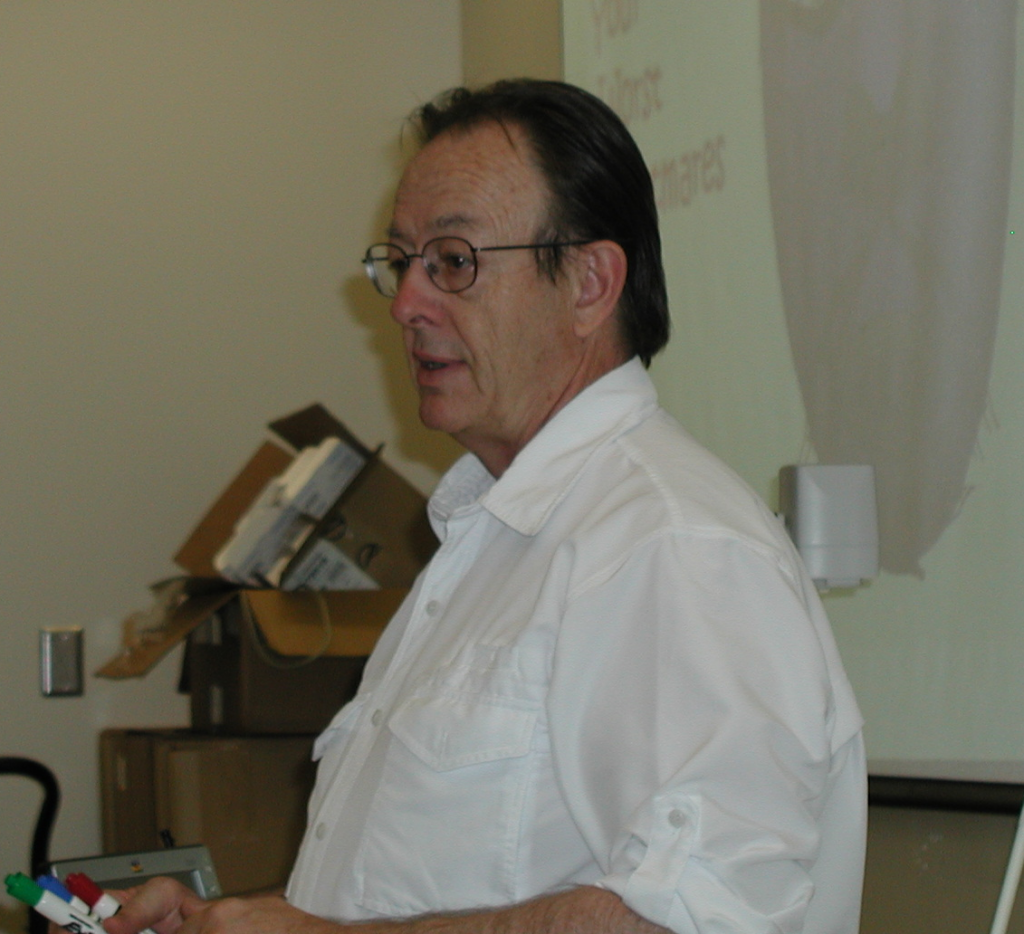Claude Whitmyer
Claude Whitmyer is co-founder of the University of the Future, LLC (FutureU™).
Mr. Whitmyer has more than 40 years’ experience as an educator, entrepreneur, computer technologist and community organizer.
Whitmyer has served more than 2,000 clients in several hundred corporations, small and micro businesses, and non-profits.
Claude’s consulting focus has ranged from strategic planning, market research, and corporate communications to graduate education, corporate training, and vocational guidance.
He has acted as a professional coach to several dozen executives and managers.
Whitmyer has also worked with more than 500 individual clients using his proprietary career guidance approach, Good Work Guidance™.
Claude has acted as an advisor, teacher, or administrator to more than a dozen graduate, post-Graduate, and private business education programs.
He has managed countless projects, developed numerous certificate programs and courses, and created a decision support system that tracked communications between management and key stakeholders for a major corporation.
At FutureU™ Claude oversees research and development. He also manages the pool of associate consultants, facilitators, and instructional designers who create our products and provide our consulting services. In addition, he teaches our learning online and teaching online public programs.
Claude is a 1972 graduate of the University of Nevada at Las Vegas, with a B.A. in psychology and minors in anthropology, biology, and philosophy.
He also attended a Ph.D. program in Experimental Psychology at the University of Washington before leaving graduate school to pursue business interests.
Mr. Whitmyer has focused his continuing professional education on:
- Business Management and Accounting
- Training and Development Methodologies
- Computer and Systems Analysis
- Web Authoring, Development, and Management.

Timeline
1980s
In the 1980s, Mr. Whitmyer developed a thriving computer consulting firm.
1987 to 1993
He wrote a monthly software review column for The Office magazine.
Early 1990s
Developed a masters level graduate program in business delivered mostly online.
1997
Began using the term “e-learning”(1) to represent a highly interactive method of using technology to enrich teaching and learning.
1998
Together with Gail Terry Grimes, founded The University of the Future, LLC (aka FutureU™) to spread the word about the challenges and benefits of technology-mediated learning and communications.
2000s through 2012
Served numerous colleges and universities, government and healthcare organizations, and small and really small businesses.
2012 to present
Focusing on small and really small businesses seeking more meaningful ways of working in the world, using a special consulting process that integrates mindfulness, simple living, and right livelihood as the foundation of an alternative business model.
He has extensive training in group process and meeting facilitation, including:
- Interaction Method™
- Meeting management
- Group Graphics™
- Facilitation using graphic language
- Future Search™
- Large group vision and planning process
Mr. Whitmyer is the author of three books:
- In the Company of Others: Making Community in the Modern World (Putnam, 1993)
- Mindfulness and Meaningful Work: Explorations in Right Livelihood (Parallax, 1994)
- Running A One-Person Business (Ten Speed, 1994, 2nd ed.).
NOTE (1). Author, consultant, and learning guru Jay Cross is often credited with being the first modern commenter to spread the term “e-learning,” dating to 1998. Whitmyer’s use of the term in 1997 was meant to apply to the whole universe of what had been called, up to that time, technology-mediated learning.
For Cross the term somehow encompasses technology-mediated learning but as seen through the lenses of change management and internal marketing (see “Implementing E-Learning” which Jay co-wrote with change consultant Lance Dublin). Claude wasn’t so much trying to be comprehensive as he was trying to come up with something shorter than the big mouthful required by “technology-mediated.”
At the November 2001 COMDEX held in Las Vegas, Cisco CEO John Chambers delivered a keynote address in which he unequivocally stated “E-learning is the next major killer application.” His vision, of course, was that the always-on, any-device, high-speed network, that Cisco was busy encouraging would deliver just-in-time information to anybody, anywhere. It was, arguably, this particular use of the term that made it a household word.
When LMS manufacturer Blackboard Inc. received a U.S. patent for the term “e-learning” in January 2006, there was a widespread backlash against their laying claim to such a commonly used term. Shortly thereafter a Wikipedia entry on “virtual learning environments” was created to set the record straight. Originally claiming that Vannevar Bush coined the term back in 1945 to assist in describing a proposed hypertext-like machine called the Memex, the most current version of the Wikipedia entry fails to give anyone credit for spreading the term.
A simple search engine literature search provides ample evidence that the concept of “e-learning” was probably a zeitgeist waiting for someone to name it, which both Jay and Claude did — early and independently — but which Cisco CEO Chambers got the most attention for.
All claims aside, there is a lot of confusion about what the term “e-learning” actually means. Today’s usages range from a synonym for self-paced, web-based training all the way to Cross’s more comprehensive meaning. Experts in technology-mediated learning have adopted a whole new set of vocabulary to differentiate various aspects, including “blended learning,” “virtual learning,” and “online learning.” Cross himself expanded the horizons of learning and e-learning by promulgating the concepts of “emergent learning” and “informal learning.”
